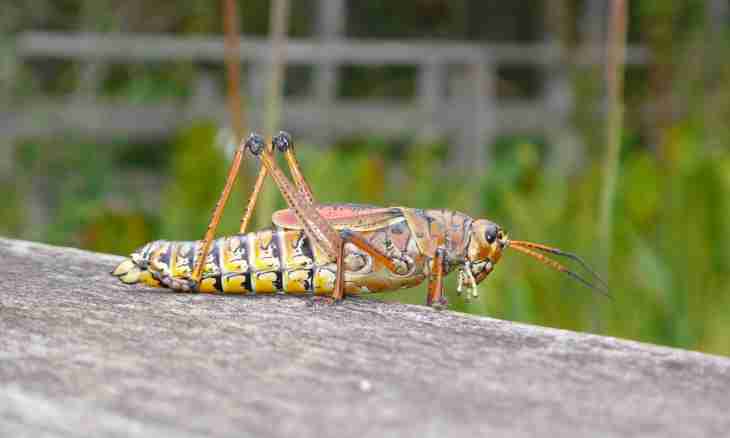Insects – the creations belonging to the class of invertebrate arthropods. From all terrestrial beings only they managed to adapt to life literally in all climatic zones. Their number is very considerable, also as well as ability to breed in large quantities and in short terms. They are present literally everywhere and are capable to be unpleasant and annoying, to cause inconveniences, and at times and frank harm. It seems, with them everything is clear. But it is worth to remember – to the types which were useless or unnecessary, the nature is ruthless. So why the nature needs insects?
Instruction
1. Insects are small by the size, but are very numerous and various. It is difficult to overestimate that influence which they render on the biosphere of Earth. The most striking and known example of useful insects – bees who pick honey and at the same time in passing pollinate plants. And how about the others – the caterpillars eating huge amount of greens, biting mosquitoes and midges and an other trifle which usefulness is not simple to be noticed at first sight at all?
2. First of all, it is necessary to tell that not only bees promote pollination of plants. Many insects are butterflies, bumblebees, bugs, flies - need pollen and nectar and daily visit huge amount of colors, carrying out, thus, their cross-pollination. Some plant species so adapted and so depend on certain species of insects that at their absence are not capable to fructify.
3. It is known that larvae of insects – a caterpillar – eat leaves of wild-growing and cultural plants. For many millions of years of a plant adapted to potential damages insects. Approximately the one fourth part of leaves is not need. These are spare leaves. Damages, as a rule, only stimulate gain of green material of plants.
4. Sometimes caterpillars, damage trees in the forest, and is so strong that leave them absolutely without leaves. However approximately to the middle of summer greens on trees all the same will appear. In the fall the layer of the fallen-down foliage will not be too powerful and by next spring the forest laying will turn into humus by means of earthworms and other soil organisms. Accumulation of the fallen-down and not processed foliage harms the wood. Access of water and air to roots of trees is at a loss, and they begin to die off, seeds remain on a surface of a deciduous laying and cannot sprout. Besides, the excrement of caterpillars disseminated through all wood is dozens of kilograms of additional fertilizers. Of course, higher and higher told does not belong to cases of "explosive" reproduction of insects at which there is ecological disruption.
5. There are very many species of the insects performing sanitary and soil-forming functions. They accelerate decomposition of a dung of animals and their remains, promote moving of humus to the soil and literally plow up it, creating conditions for normal development of plants. These are various bugs and flies earth-boring dung beetles, meat eaters and mertvoyeda, bugs grave-diggers etc.
6. Insects are very prolific. Larvae of some flying small insects it is possible to find nearly in each pool. They are capable to accumulate also the organism the valuable minerals getting to water from the soil. The flying insects who developed from larvae carry them, fertilizing the soil. Considering that their biomass is huge, one may say, that it is an important element of soil formation.
7. At last, you should not forget that for some animal species – birds, fishes - insects and their larvae are if not the main thing, then very important link of a food chain.

